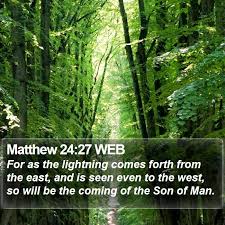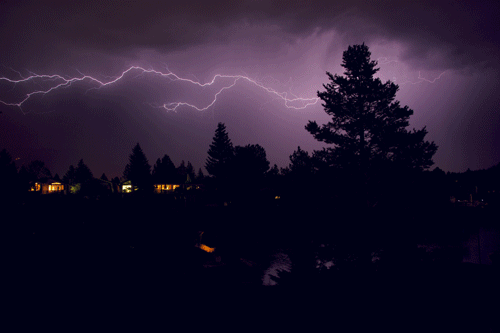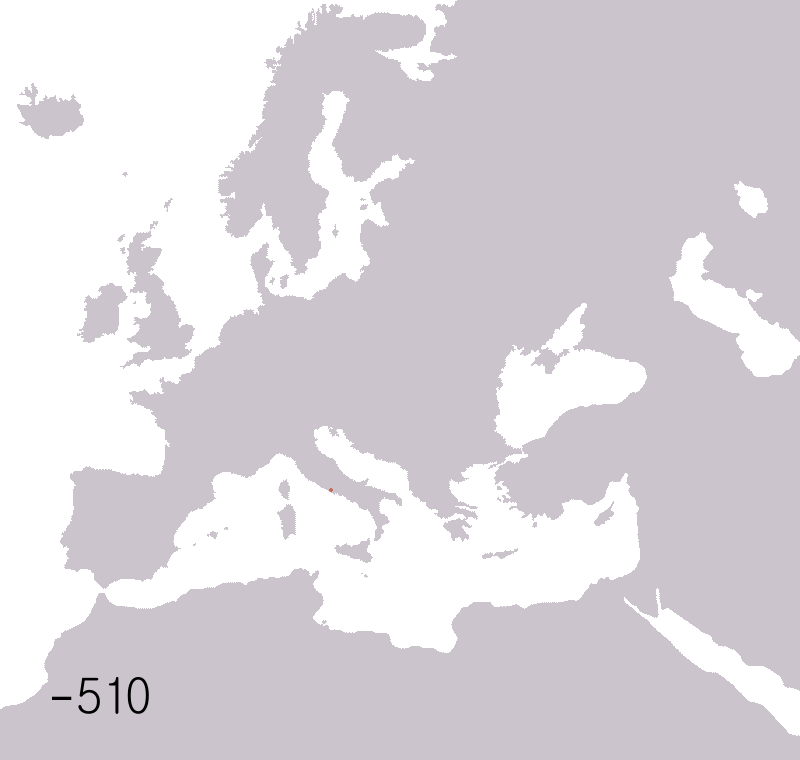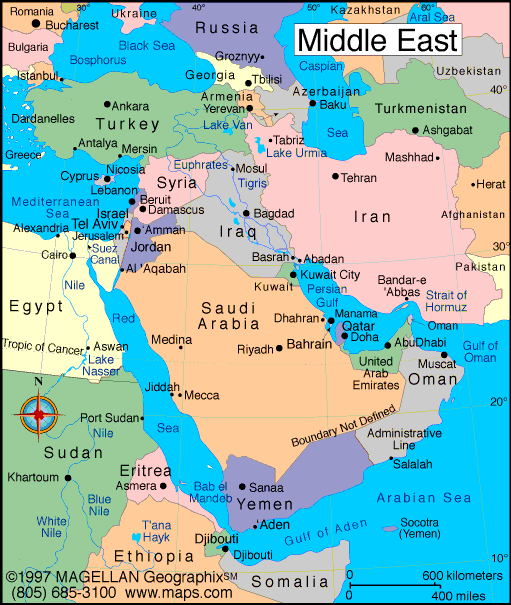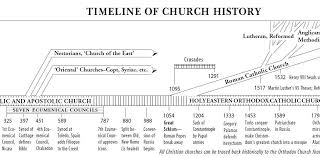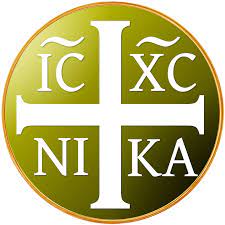The word of the Lord concerning Israel: Thus says the Lord, who stretched out the heavens and founded the earth and formed the human spirit within: See, I am about to make Jerusalem a cup of reeling for all the surrounding peoples; it will be against Judah also in the siege against Jerusalem. On that day I will make Jerusalem a heavy stone for all the peoples; all who lift it shall grievously hurt themselves. And all the nations of the earth shall come together against it. On that day, says the Lord, I will strike every horse with panic, and its rider with madness. But on the house of Judah I will keep a watchful eye, when I strike every horse of the peoples with blindness. Then the clans of Judah shall say to themselves, ‘The inhabitants of Jerusalem have strength through the Lord of hosts, their God.’
On that day I will make the clans of Judah like a blazing pot on a pile of wood, like a flaming torch among sheaves; and they shall devour to the right and to the left all the surrounding peoples, while Jerusalem shall again be inhabited in its place, in Jerusalem.
And the Lord will give victory to the tents of Judah first, so that the glory of the house of David and the glory of the inhabitants of Jerusalem may not be exalted over that of Judah. On that day the Lord will shield the inhabitants of Jerusalem, so that the feeblest among them on that day shall be like David, and the house of David shall be like God, like the angel of the Lord, at their head. And on that day I will seek to destroy all the nations that come against Jerusalem.

And I will pour out a spirit of compassion and supplication on the house of David and the inhabitants of Jerusalem, so that, when they look on the one whom they have pierced, they shall mourn for him, as one mourns for an only child, and weep bitterly over him, as one weeps over a firstborn. On that day the mourning in Jerusalem will be as great as the mourning for Hadad-rimmon in the plain of Megiddo. The land shall mourn, each family by itself; the family of the house of David by itself, and their wives by themselves; the family of the house of Nathan by itself, and their wives by themselves; the family of the house of Levi by itself, and their wives by themselves; the family of the Shimeites by itself, and their wives by themselves; and all the families that are left, each by itself, and their wives by themselves.
On that day a fountain shall be opened for the house of David and the inhabitants of Jerusalem, to cleanse them from sin and impurity.
On that day, says the Lord of hosts, I will cut off the names of the idols from the land, so that they shall be remembered no more; and also I will remove from the land the prophets and the unclean spirit. And if any prophets appear again, their fathers and mothers who bore them will say to them, ‘You shall not live, for you speak lies in the name of the Lord’; and their fathers and their mothers who bore them shall pierce them through when they prophesy. On that day the prophets will be ashamed, every one, of their visions when they prophesy; they will not put on a hairy mantle in order to deceive, 5but each of them will say, ‘I am no prophet, I am a tiller of the soil; for the land has been my possession since my youth.’ And if anyone asks them, ‘What are these wounds on your chest?’ the answer will be ‘The wounds I received in the house of my friends.’
‘Awake, O sword, against my shepherd,
against the man who is my associate,’
says the Lord of hosts.
Strike the shepherd, that the sheep may be scattered;
I will turn my hand against the little ones.
In the whole land, says the Lord,
two-thirds shall be cut off and perish,
and one-third shall be left alive.
And I will put this third into the fire,
refine them as one refines silver,
and test them as gold is tested.
They will call on my name,
and I will answer them.
I will say, ‘They are my people’;
and they will say, ‘The Lord is our God.’
See, a day is coming for the Lord, when the plunder taken from you will be divided in your midst. For I will gather all the nations against Jerusalem to battle, and the city shall be taken and the houses looted and the women raped; half the city shall go into exile, but the rest of the people shall not be cut off from the city. Then the Lord will go forth and fight against those nations as when he fights on a day of battle. On that day his feet shall stand on the Mount of Olives, which lies before Jerusalem on the east; and the Mount of Olives shall be split in two from east to west by a very wide valley; so that half of the Mount shall withdraw northwards, and the other half southwards. And you shall flee by the valley of the Lord’s mountain, for the valley between the mountains shall reach to Azal; and you shall flee as you fled from the earthquake in the days of King Uzziah of Judah. Then the Lord my God will come, and all the holy ones with him.
On that day there shall not be either cold or frost. And there shall be continuous day (it is known to the Lord), not day and not night, for at evening time there shall be light.
On that day living waters shall flow out from Jerusalem, half of them to the eastern sea and half of them to the western sea; it shall continue in summer as in winter.
And the Lord will become king over all the earth; on that day the Lord will be one and his name one.
The whole land shall be turned into a plain from Geba to Rimmon south of Jerusalem. But Jerusalem shall remain aloft on its site from the Gate of Benjamin to the place of the former gate, to the Corner Gate, and from the Tower of Hananel to the king’s wine presses. And it shall be inhabited, for never again shall it be doomed to destruction; Jerusalem shall abide in security.
This shall be the plague with which the Lord will strike all the peoples that wage war against Jerusalem: their flesh shall rot while they are still on their feet; their eyes shall rot in their sockets, and their tongues shall rot in their mouths. On that day a great panic from the Lord shall fall on them, so that each will seize the hand of a neighbour, and the hand of one will be raised against the hand of the other; even Judah will fight at Jerusalem. And the wealth of all the surrounding nations shall be collected—gold, silver, and garments in great abundance. And a plague like this plague shall fall on the horses, the mules, the camels, the donkeys, and whatever animals may be in those camps.
Then all who survive of the nations that have come against Jerusalem shall go up year by year to worship the King, the Lord of hosts, and to keep the festival of booths. If any of the families of the earth do not go up to Jerusalem to worship the King, the Lord of hosts, there will be no rain upon them. And if the family of Egypt do not go up and present themselves, then on them shall come the plague that the Lord inflicts on the nations that do not go up to keep the festival of booths. Such shall be the punishment of Egypt and the punishment of all the nations that do not go up to keep the festival of booths.
On that day there shall be inscribed on the bells of the horses, ‘Holy to the Lord.’ And the cooking-pots in the house of the Lord shall be as holy as the bowls in front of the altar; and every cooking-pot in Jerusalem and Judah shall be sacred to the Lord of hosts, so that all who sacrifice may come and use them to boil the flesh of the sacrifice. And there shall no longer be traders in the house of the Lord of hosts on that day. (Zechariah 12-14) |


